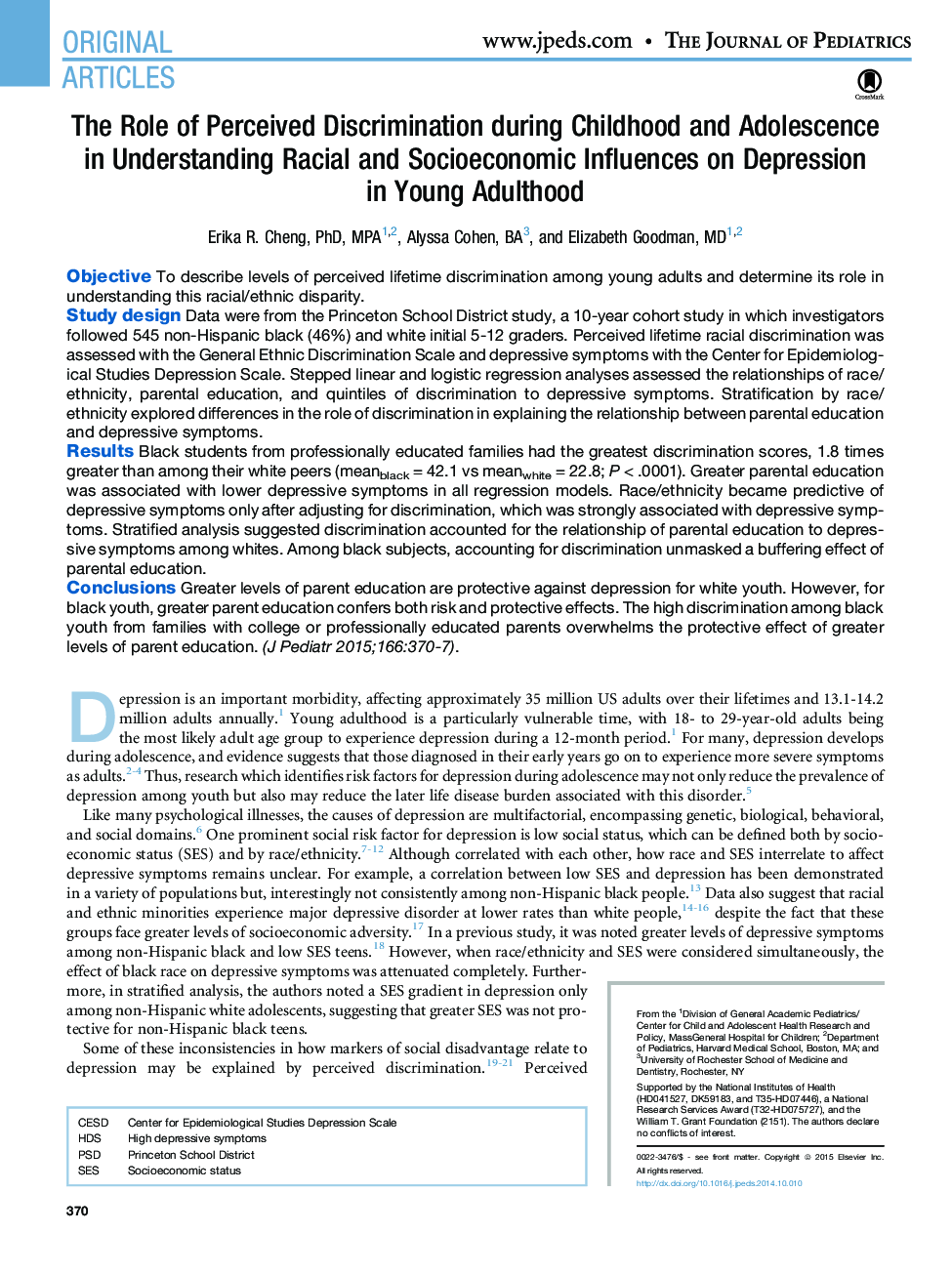| کد مقاله | کد نشریه | سال انتشار | مقاله انگلیسی | نسخه تمام متن |
|---|---|---|---|---|
| 6221724 | 1607446 | 2015 | 9 صفحه PDF | دانلود رایگان |
ObjectiveTo describe levels of perceived lifetime discrimination among young adults and determine its role in understanding this racial/ethnic disparity.Study designData were from the Princeton School District study, a 10-year cohort study in which investigators followed 545 non-Hispanic black (46%) and white initial 5-12 graders. Perceived lifetime racial discrimination was assessed with the General Ethnic Discrimination Scale and depressive symptoms with the Center for Epidemiological Studies Depression Scale. Stepped linear and logistic regression analyses assessed the relationships of race/ethnicity, parental education, and quintiles of discrimination to depressive symptoms. Stratification by race/ethnicity explored differences in the role of discrimination in explaining the relationship between parental education and depressive symptoms.ResultsBlack students from professionally educated families had the greatest discrimination scores, 1.8 times greater than among their white peers (meanblack = 42.1 vs meanwhite = 22.8; P < .0001). Greater parental education was associated with lower depressive symptoms in all regression models. Race/ethnicity became predictive of depressive symptoms only after adjusting for discrimination, which was strongly associated with depressive symptoms. Stratified analysis suggested discrimination accounted for the relationship of parental education to depressive symptoms among whites. Among black subjects, accounting for discrimination unmasked a buffering effect of parental education.ConclusionsGreater levels of parent education are protective against depression for white youth. However, for black youth, greater parent education confers both risk and protective effects. The high discrimination among black youth from families with college or professionally educated parents overwhelms the protective effect of greater levels of parent education.
Journal: The Journal of Pediatrics - Volume 166, Issue 2, February 2015, Pages 370-377.e1
